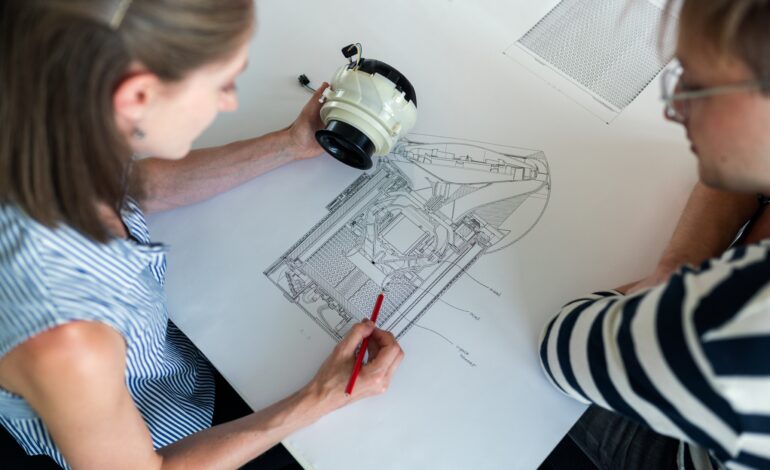
Empathy is a fundamental aspect of human interaction that involves understanding and sharing the feelings, perspectives, and experiences of others. It goes beyond sympathy, which is simply recognizing and acknowledging another person’s emotions. Instead, empathy requires actively putting yourself in someone else’s shoes to truly grasp their emotions and point of view. Building deeper connections and understanding through empathy can have a profound impact on personal relationships, teamwork, communication, and even conflict resolution.
Here are some key ways in which empathy can help build deeper connections and understanding:
Active Listening

You can’t show empathy if you don’t listen. Listening is the foundation of empathy, because it’s how we understand what another person is going through. We may not be able to change the way they feel or what they’re going through, but we can at least be there for them and let them know that we care.
Active listening involves more than just hearing someone’s words—it involves paying attention to body language and nonverbal communication as well, which signals that you’re really listening. It also requires maintaining eye contact and nodding occasionally to show that you’re engaged in the conversation.
Validation
Empathy is a great way to show that you’re listening and understanding. When someone tells you something, it’s not enough to just listen; you need to convey that you’re listening in a way that shows them that you are connecting on an emotional level with what they’re saying.
Validation is the best way to do this. Validation involves acknowledging the other person’s emotions without judgment. Statements like “I understand how you feel” or “That must be really tough” show that you’re recognizing and respecting their emotions.
If someone tells you they’ve had a hard day at work, don’t just say “yeah, I’m sure.” Instead, acknowledge how difficult their day was by saying something like: “Wow, it sounds like your day was really hard today.” This shows that even if it wasn’t a big deal for you personally, it was still a big deal for them—which is something most people want to hear when they open up about something personal.
Cultural Sensitivity
We are all different—and that’s what makes us special.
When you’re interacting with people from different backgrounds, it’s important to remember that your experiences are not the same as theirs. We all have unique perspectives based on our experiences, and this can affect how we feel about things and how we react in certain situations.
Being culturally sensitive means taking the time to listen carefully to other people’s stories, appreciate their differences, and make an effort to understand where they’re coming from. It also means taking steps to ensure that everyone feels safe and welcome when they’re around you or your organization.
Shared Personal Experiences
Sometimes, sharing your own experiences or vulnerabilities can help the other person feel more comfortable opening up. However, be careful not to dominate the conversation or shift the focus away from them.
Asking questions about their experiences and listening attentively are great ways to encourage them to talk about what they’re going through. If you’re unsure of how much information is too much, ask them! They may appreciate your interest in their lives and want to share more with you than they would with a stranger or acquaintance. If they are reluctant to talk about themselves or if they seem upset by your questions, it may be best to change the subject or leave them be for awhile.
Empathy Mapping
Empathy mapping is a technique that helps you understand the other person’s thoughts, emotions, motivations and needs. Your goal is to create a map of their perspective—it’s not about solving the problem or criticizing their viewpoint. Instead, it’s about getting a deeper understanding of why they’re thinking what they’re thinking.
To start an empathy map, ask yourself: “What are the facts?” For example: “She thinks it’s unfair that she has to clean up after everyone else.” Next ask yourself: “What are my feelings?” For example: “I’m annoyed that she doesn’t help out more.” Then ask yourself: “Why do I feel this way?” For example: “Because I’m tired of picking up after her.” Finally, ask yourself: “What does this person want?” For example: “She wants me to stop being so annoying.”
Now go through each of these questions again with another fact and feeling. Repeat until you’ve completed at least three rounds of questioning and answering.
Offer Support
There are times when someone you love is going through a challenging time, and you can’t do anything to help them. You want to be there for them, but they might not want your help. When this happens, it’s important to let them know that you’re there for them—and that doesn’t mean you need to “fix” things.

You might offer them a listening ear or a shoulder to cry on when they need it most. You might invite them to come over for dinner so you can cook for them and make sure they eat well while they’re going through a hard time. Or maybe you just send them a text saying “thinking of you” or “I’m here if you need me.” It doesn’t have to be big or dramatic; even something small can mean the world when someone’s going through a hard time.
Patience
Patience is a virtue, and it’s one that you’ll need to develop as you learn to develop empathy. You might have heard that developing empathy is something you’re either born with or not, but the truth is much more complicated than that—empathy is a skill that can be learned, but it takes time and practice.
It’s important to remember that everyone is different, and what works for one person may not work for another. Some people might find themselves naturally empathetic toward others, while others might struggle with it. Either way, it’s important to remember that you’re on a journey of self-discovery—and if this process doesn’t feel like something that comes naturally to you at first, take heart in knowing it will get easier over time (and with practice).
With the growing prevalence of technology, we are more connected than ever before. We have more opportunities to connect with others than ever before—and yet, it can sometimes feel like we’re disconnected from each other.
In this article, we’ve explored the research-backed benefits of empathy and how it can help us build stronger relationships and foster a more compassionate environment. I hope that this information helps you incorporate empathy into your life and create lasting change in your community.
RUCHI RATHOR Founder & CEO
Payomatix Technologies Pvt. Ltd.
FOUNDER AND INVESTOR | PAYMENTS PROCESSING EXPERT | MERCHANT ACCOUNT SOLUTIONS | WHITE LABELLED PAYMENT GATEWAY | Dreamer, Creator, Achiever, Constantly Evolving
Website Ruchi Rathor: https://ruchirathor.com
Website Healing Heart https://thehealingheart.me/
Instagram https://www.instagram.com/_ruchirathor_/
LinkedIn https://www.linkedin.com/in/ruchirathor12/
Facebook https://www.facebook.com/ruchi.rathor.magnificient
Tumblr https://www.tumblr.com/blog/ruchirathor-thehealingheart
Medium https://medium.com/@ruchirathor_23436









